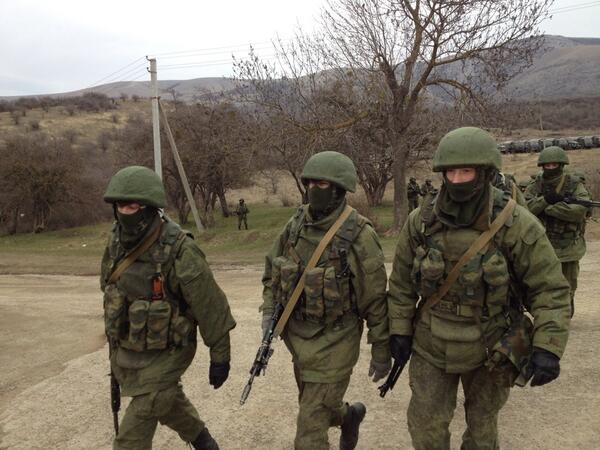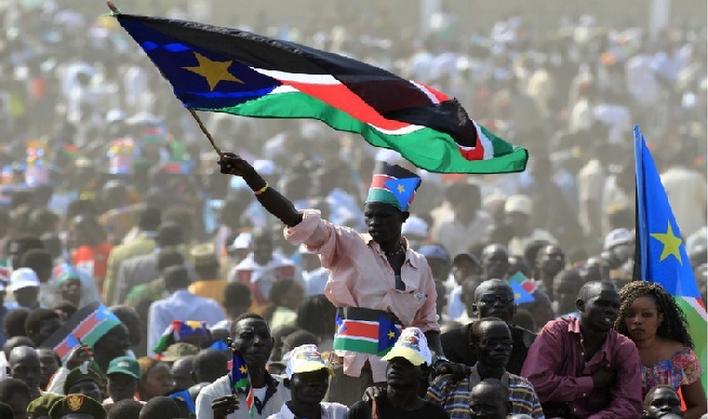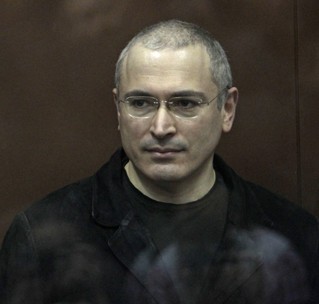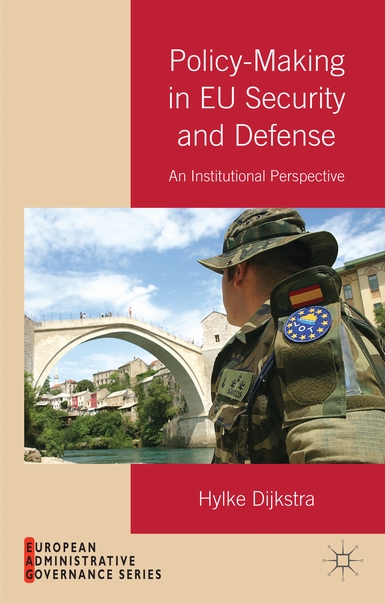
The events of recent days mean that Russia now holds all the cards over the secession of Crimea from Ukraine
The attempt to reassert secession in Crimea cannot be fully understood without locating it within a time frame that dates to the fall of communism in the early 1990s, and without recognising some other relevant key historical factors. This case is a legacy of the international management of secession in the 1990s, in which the EU (or EC as it was then) played a lead role.
The European Community’s “Arbitration Committee” under the chair of French constitutional lawyer Robert Badinter, was set up to give legal opinions on the secessions from Yugoslavia. It restated a number of international norms on secession and established three main principles. First when states were “in dissolution” the decolonising norm of uti possidetis juris would apply, namely, that secession would only be permitted to the next highest administrative entities below the state level. The conclusion was that there could be “no secession within secession” – a decision which excluded Kosovo from legal recognition as a secessionist case.

The Neurochemistry of Power: Implications for Political Change
Power, especially absolute and unchecked power, is intoxicating. Its effects occur at the cellular and neurochemical level. They are manifested behaviourallynin a variety of ways, ranging from heightened cognitive functions to lack of inhibition, poor judgment, extreme narcissism, perverted behaviour, and gruesome cruelty.
The primary neurochemical involved in the reward of power that is known today is dopamine, the same chemical transmitter responsible for producing a sense of pleasure. Power activates the very same reward circuitry in the brain and creates an addictive ‘high’ in much the same way as drug addiction. Like addicts, most people in positions of power will seek to maintain the high they get from power, sometimes at all costs. When withheld, power – like any highly addictive agent – produces cravings at the cellular level that generate strong behavioural opposition to giving it up. In accountable societies, checks and balances exist to avoid the inevitable consequences of power. Yet, in cases where leaders possess absolute and unchecked power, changes in leadership and transitions to more consensus-based rule are unlikely to be smooth. Gradual withdrawal of absolute power is the only way to ensure that someone will be able to accept relinquishing it.

South Sudan: Uganda’s intervention may provoke a regional war
A few days ago, I discussed on Radio France International the collapse of the cease-fire and resumption of open war between the beleaguered South Sudanese government of President Salva Kiir and the rebel forces led by former Vice-President Riek Machar. The violence in South Sudan has since December 2013 claimed the lives of more than 10000 people- a death toll that is rapidly rising as diplomatic efforts have failed to broker a short-term cessation of hostilities, let alone a longer term political solution. The massive intervention of the Ugandan People’s Defence Force (UPDF) with thousands of infantrists, tanks and helicopter gunships has, for the time being, saved President Salva Kiir and the Southern Sudanese capital Juba but risks triggering a wider regional crisis that could see Sudanese and Eritrean involvement and would bring back echoes of the devastating regional wars and proxy conflicts of the 1970s, 1980s and 1990s during which millions of people perished.

Yemen’s Eastern Province: The people of Mahra clearly want independence
In late November 2013, I was invited by a cross-tribal delegation in Yemen’s eastern province of Mahra to explain the results of a public opinion survey that I had completed there with their help earlier in the year. Owing to heightened security risks from entrenched interests and al-Qa’ida operatives, around 20 vehicles of trusted tribesmen, armed to the hilt, had made the journey to meet me at the desert crossing between Oman and Yemen. We drove through the night to a fortified compound just outside Mahra’s capital, al-Ghayda. This unfurnished fortress was to be the centre of activity for me and about 50 armed men for the next week. Strangely, I had never slept so well as I did on my roll-up mattress on the floor, safe in the knowledge that three guards remained outside my window all night and a dozen more on the roof above me.

The Putin-Khodorkovsky dichotomy: The media got it all wrong
It looked like a scene from a Cold War spy thriller. 24 hours after his release, Oligrach Mikhail Khodorkovsky, who ended a 10-year sentence, appeared in Berlin wearing a heavy duty Russian air-force jacket and smiling broadly. It was, however, the Russian President Vladimir Putin’s announcement about Khodorkovsky’s early release which caught a lot of people by surprise. A global media spectacle followed.Journalists and commentators scrutinised whether Putin’s decision symbolised a political strength or weakness, whether Khodorkovsky admitted his guilt, and whether he is going to become a political opposition figure or remain in exile. Media outlets appeared to be outpacing one another in applying dramatic labels to the momentous event.
A reflection on the media coverage along with the analysis of Khodorkovsky’s interviews of the past few days, however, paints a more ambivalent picture and suggests that the dichotomies and sensational labels applied are often not fitting. The “surprise” label attributed to Putin’s decision, the “disappointment” characterising public reaction at Khodorkovky’s apparent disinterest in re-entering Russian politics, and the “Dissident versus Despot” dichotomy applied to the Putin-Khodorkovky’s relationship, bear closer scrutiny. A closer look at his latest interviews highlights Khodorkovsky’s complex personality and well-formed, but somewhat, contradictory political views.

Scotland: What will happen after the vote
At 650 pages Scotland’s Future is not a light read. It stands as the Scottish Government’s manifesto for a yes vote in the independence referendum. The volume ranges from profoundly important questions relating to currency and Scotland’s membership of the European Union, right down to weather-forecasting and the future of the National Lottery. Though it is likely many copies of Scotland’s Future will be printed, it is unlikely many will be read from cover to cover. Its authors probably do not regret its length: by its very heft, the volume seeks to rebut claims that the consequences of independence have not been carefully thought through. This post considers the immediate constitutional consequences of a yes vote in light of Scotland’s Future. Its central argument will be that the timescale proposed by the Scottish Government for independence following a referendum is unrealistic, and may work against the interests of an independent Scotland.

The End of the Arab Spring
In December 2010, a revolutionary spark in Tunisia initiated what is now referred to as the Arab Spring. Since then, many countries across the broader Middle East have been swept up in uprisings that have led to fundamental shifts in Tunisia, Egypt, Libya, and Yemen. The same drive for change has also led to minor changes in Jordan, Morocco, and elsewhere.
These events have drawn the attention of many regional and international observers, experts, and scholars. In many circles, there was a widespread optimism with respect to the nature and course of the Arab Spring, and some observers held to the domino theory, that is, if one revolution took hold, others would follow. Indeed, these expectations and interpretations have been proven true to some degree. First, the contemporary Arab uprisings were able to put an end to dictators and quasi-dictators in Tunisia, Egypt, Libya, and Yemen, such that the deposed presidents and parts of their cliques were arrested (e.g., Egypt), accused of state crimes and corruption (e.g., Tunisia), or caught and murdered (Libya). Second, these events put these countries on a path toward political transformation. In this way, we have seen in the major Spring-nations the establishment of new political parties and elections. Due to the modification of whole regimes, these states have completed successful transitions; a significant first step toward democratization.

Policy making in EU Security and Defense: A Q&A with Hylke Dijkstra
Hylke Dijkstra, a Marie Curie fellow here in Oxford, has brought out a book that is of considerable contemporary interest as the EU struggles to relocate itself more firmly in the world not only of economics and finance, but of international relations. Congratulations to him!
Security has been a catch-phrase for our times. Military, civilian, human, legal, economic, environmental? Delivered by states, institutions, by NGOs, by citizens, by armies or judges? The term has been defined almost to ‘meaningless-ness’. Classical defence debates have virtually disappeared from our vocabularies. And no roomful of political scientists could ever agree on an exhaustive list of what the most important security and defence threats actually are. So Dijkstra’s book is an ambitious one.









